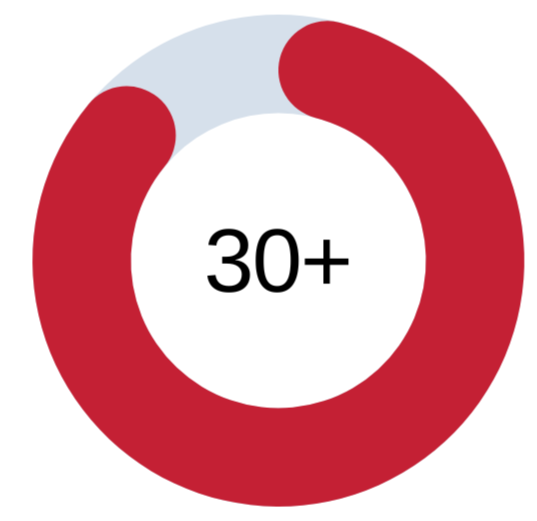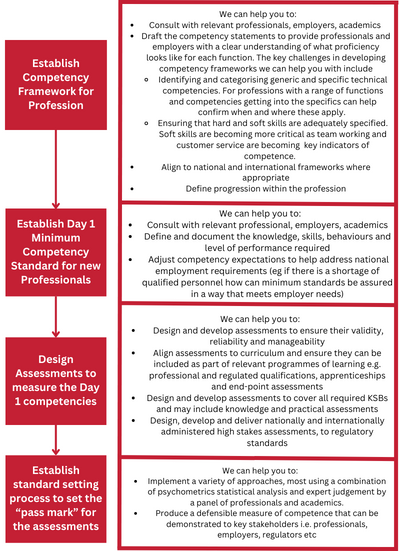Professional standards and national assessments
Professional standards set out the skills, knowledge and behaviours that represent technical and ethical competence for a profession and support professional growth.
Professional standards can:
- set clear expectations about effective practice within a profession and identify entry points into a profession
- enable professionals to reflect on their practice, individually and collectively, against nationally agreed standards.
- support professionals to identify areas for further professional development and a framework to progress their careers within a profession.
- provide a framework for performance management processes for employers

AlphaPlus has worked with over 30 professional bodies across a multitude of sectors including healthcare, accounting, legal and many more and so has a broad international perspective of the challenges being faced.
Challenges and developments in the professional assessment sector
Professional bodies face several critical challenges:
- Establishing and sustaining a common and up-to-date view among educators, qualified professionals and government on:
- the range of skills, knowledge, behaviours and attitudes required for entry to the profession
- the minimum standard (or “Day 1 competence”) individuals must have to qualify
- Designing assessments to cover (1.1) and administering them effectively and reliably (ensuring assessment security, providing equitable access to assessment etc.)
- Setting a pass standard which aligns with (1.2) and is consistent from one assessment cycle to another.
Traditionally, much of this was left to universities (HEIs) who decide the curriculum for an undergraduate degree, sometimes with support from Professional Bodies and Industry Regulators. The HEI then awards the degree, which is accredited by the Professional Body – the graduate is now qualified.
This approach is changing. Many Professional Bodies award their own Professional Qualifications which are more aligned to the occupational expectations of employers. The landscape of vocational education is also changing in England, with more pathways to employment through “on-the-job” learning opportunities, aligned to occupational standards e.g. apprenticeships (including degree apprenticeships) and T-Levels.
The nature of employment is changing. A job for life is increasingly becoming a thing of the past with around a fifth of working adults in the UK (21%) stating that they do not expect to be working in the same industry in 20301. Professional Bodies are increasingly identifying how they can provide recognition for transferable knowledge and skills for individuals coming from other industries or providing accelerated learning programmes and pathways into their profession.
The UK is still facing a talent shortage. In August 2022, the Federation of Small Businesses found that 80% of small firms faced difficulties recruiting applicants with suitable skills in the previous 12 months2. A critical challenge for Professional Bodies is providing a mechanism for assessing professionals coming from overseas. Consistency in approach for both domestic and international candidates ensures the assessment is fair, and confidence in the outcomes is maintained.
Critical to all this is Professional Bodies ensuring no one can access their profession without demonstrating minimum competence. Robust, but flexible and accessible assessment strategies are key to this.
- The Future of Learning, FutureLearn 2021 https://www.futurelearn.com/info/press-releases/global-report-suggests-job-for-life-a-thing-of-the-past
Federation of Small Businesses Scaling up skills report, 2022 https://www.fsb.org.uk/resource-report/scaling-up-skills.html
How AlphaPlus can help develop robust competency frameworks and assessments

For more information on how we can help you take on challenges in your sector contact Fraser Talbot (Business Development Lead UK) here.
 AlphaPlus
AlphaPlus